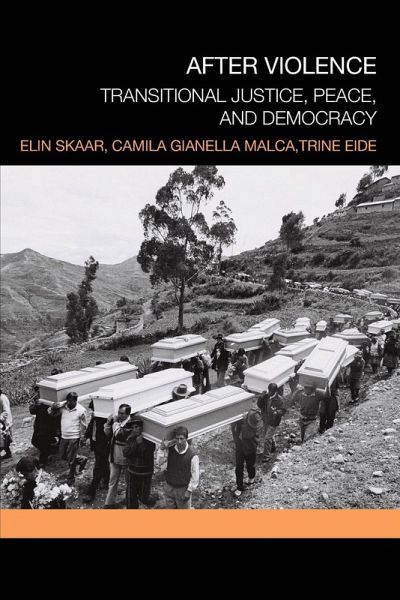
After Violence
Transitional Justice, Peace, and Democracy
Versandkostenfrei!
Versandfertig in 1-2 Wochen
69,99 €
inkl. MwSt.
Weitere Ausgaben:

PAYBACK Punkte
35 °P sammeln!
Addressing trials, reparations and amnesties, as well as truth commissions, Transitional Justice, Peace and Democracy systematically addresses the experiences of four very different contemporary transitional justice cases: post-authoritarian Uruguay and Peru and post-conflict Rwanda and Angola. Demonstrating that context is a crucial determinant of the impact of transitional justice processes, the book also identifies specific contextual obstacles and limitations to these processes. It will be of considerable interest to scholars in the fields of transitional justice and peace-building, as wel...
Addressing trials, reparations and amnesties, as well as truth commissions, Transitional Justice, Peace and Democracy systematically addresses the experiences of four very different contemporary transitional justice cases: post-authoritarian Uruguay and Peru and post-conflict Rwanda and Angola. Demonstrating that context is a crucial determinant of the impact of transitional justice processes, the book also identifies specific contextual obstacles and limitations to these processes. It will be of considerable interest to scholars in the fields of transitional justice and peace-building, as well as students generally concerned with human rights and democratisation.




